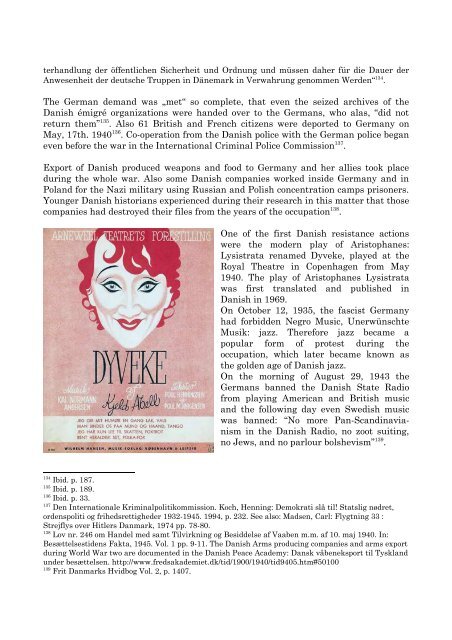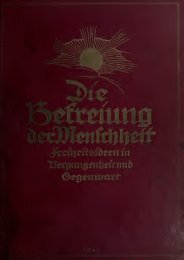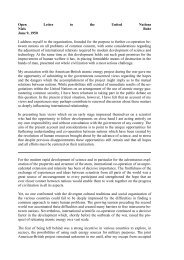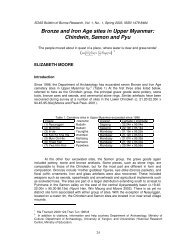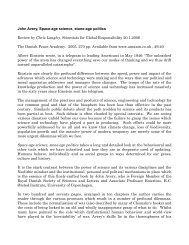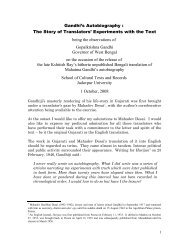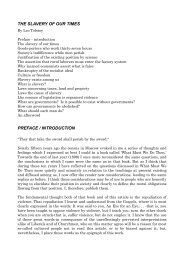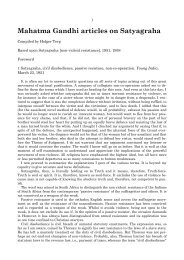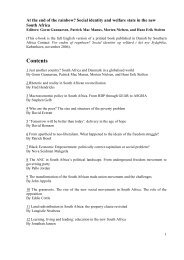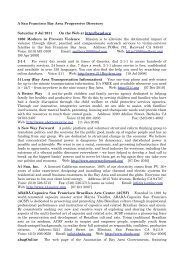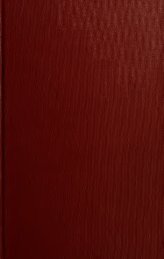Terp, Holger: Danish Peace History - Det danske Fredsakademi
Terp, Holger: Danish Peace History - Det danske Fredsakademi
Terp, Holger: Danish Peace History - Det danske Fredsakademi
Create successful ePaper yourself
Turn your PDF publications into a flip-book with our unique Google optimized e-Paper software.
terhandlung der öffentlichen Sicherheit und Ordnung und müssen daher für die Dauer der<br />
Anwesenheit der deutsche Truppen in Dänemark in Verwahrung genommen Werden“ 134 .<br />
The German demand was „met“ so complete, that even the seized archives of the<br />
<strong>Danish</strong> émigré organizations were handed over to the Germans, who alas, “did not<br />
return them” 135 . Also 61 British and French citizens were deported to Germany on<br />
May, 17th. 1940 136 . Co-operation from the <strong>Danish</strong> police with the German police began<br />
even before the war in the International Criminal Police Commission 137 .<br />
Export of <strong>Danish</strong> produced weapons and food to Germany and her allies took place<br />
during the whole war. Also some <strong>Danish</strong> companies worked inside Germany and in<br />
Poland for the Nazi military using Russian and Polish concentration camps prisoners.<br />
Younger <strong>Danish</strong> historians experienced during their research in this matter that those<br />
companies had destroyed their files from the years of the occupation 138 .<br />
One of the first <strong>Danish</strong> resistance actions<br />
were the modern play of Aristophanes:<br />
Lysistrata renamed Dyveke, played at the<br />
Royal Theatre in Copenhagen from May<br />
1940. The play of Aristophanes Lysistrata<br />
was first translated and published in<br />
<strong>Danish</strong> in 1969.<br />
On October 12, 1935, the fascist Germany<br />
had forbidden Negro Music, Unerwünschte<br />
Musik: jazz. Therefore jazz became a<br />
popular form of protest during the<br />
occupation, which later became known as<br />
the golden age of <strong>Danish</strong> jazz.<br />
On the morning of August 29, 1943 the<br />
Germans banned the <strong>Danish</strong> State Radio<br />
from playing American and British music<br />
and the following day even Swedish music<br />
was banned: “No more Pan-Scandinavianism<br />
in the <strong>Danish</strong> Radio, no zoot suiting,<br />
no Jews, and no parlour bolshevism” 139 .<br />
134 Ibid. p. 187.<br />
135 Ibid. p. 189.<br />
136 Ibid. p. 33.<br />
137 Den Internationale Kriminalpolitikommission. Koch, Henning: Demokrati slå til! Statslig nødret,<br />
ordenspoliti og frihedsrettigheder 1932-1945. 1994, p. 232. See also: Madsen, Carl: Flygtning 33 :<br />
Strejflys over Hitlers Danmark, 1974 pp. 78-80.<br />
138 Lov nr. 246 om Handel med samt Tilvirkning og Besiddelse af Vaaben m.m. af 10. maj 1940. In:<br />
Besættelsestidens Fakta, 1945. Vol. 1 pp. 9-11. The <strong>Danish</strong> Arms producing companies and arms export<br />
during World War two are documented in the <strong>Danish</strong> <strong>Peace</strong> Academy: Dansk våbeneksport til Tyskland<br />
under besættelsen. http://www.fredsakademiet.dk/tid/1900/1940/tid9405.htm#50100<br />
139 Frit Danmarks Hvidbog Vol. 2, p. 1407.


